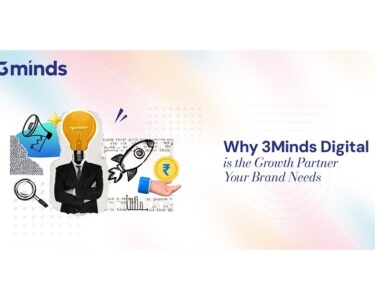In 2025, Generation Z—those born between 1997 and 2012—are no longer just interns or entry-level employees. They are managers, innovators, and increasingly, entrepreneurs. As the first truly digital-native generation, Gen Z is reshaping workplace norms, values, and expectations in ways that are both dramatic and data-backed. For business leaders and HR professionals, understanding these changes is critical to remaining competitive and building thriving teams.
Here are key business facts about how Gen Z is transforming the modern workplace in 2025.
1. Gen Z Now Makes Up Over 30% of the Global Workforce
According to a 2025 report by the International Labour Organization (ILO), Gen Z represents over 30% of the global workforce. In fast-paced sectors like tech, media, and creative industries, that number exceeds 40%.
With this level of representation, Gen Z isn’t just influencing workplace culture—they are defining it. Their preferences, communication styles, and expectations are shifting organizational structures, leadership models, and company policies.
2. Flexibility Is Non-Negotiable for Gen Z Workers
Gen Z values flexibility more than any previous generation. A LinkedIn Workforce Report from early 2025 found that 79% of Gen Z employees would leave a job if it lacked flexible scheduling or remote work options. They prioritize work-life balance and autonomy over rigid structures.
Companies that offer hybrid or remote-first models are seeing better recruitment and retention rates among Gen Z talent. Some innovative firms even offer “choose-your-hours” models, where employees can tailor their workday based on when they feel most productive.
This generation equates flexibility with trust, and businesses that adapt benefit from more engaged and loyal workers.
3. Purpose and Values Are More Important Than Paychecks
While competitive salaries still matter, Gen Z is heavily driven by purpose. According to Deloitte’s 2025 Global Gen Z Survey, 67% of Gen Z employees consider a company’s environmental and social values more important than compensation when evaluating job opportunities.
This means companies must go beyond performative statements and embrace authentic corporate social responsibility. Businesses with strong ESG (Environmental, Social, and Governance) commitments are more likely to attract and retain Gen Z talent.
Transparency also plays a critical role. Gen Z workers expect businesses to be open about their practices, impact, and policies—and they will hold them accountable through social media and workplace activism.
4. Digital Fluency Is Changing Internal Communication
Gen Z grew up with smartphones, social media, and instant messaging, and they bring these habits into the workplace. They favor communication platforms like Slack, Microsoft Teams, and Asana over traditional emails and meetings.
A 2025 survey by Gartner found that 82% of Gen Z employees prefer chat-based communication for day-to-day work, citing speed, clarity, and real-time collaboration. As a result, organizations are redesigning workflows to be more agile and digitally integrated.
This shift is also reshaping corporate training and onboarding. Microlearning through videos, interactive modules, and gamified content has become standard practice to accommodate Gen Z’s learning style.
5. Gen Z Champions Diversity, Equity, and Inclusion (DEI)
Gen Z is the most diverse generation in history—and they expect the same diversity in their workplaces. According to Glassdoor’s 2025 Workplace Inclusion Report, 74% of Gen Z employees would decline a job offer from a company lacking a strong DEI commitment.
They are more likely to speak out against discrimination, demand inclusive policies, and support coworkers from marginalized groups. In fact, many Gen Z professionals view DEI initiatives as a fundamental part of a company’s success strategy.
To meet these expectations, businesses are investing in DEI training, inclusive hiring practices, and employee resource groups (ERGs). Leadership teams are also under pressure to reflect the diversity they promote.
Conclusion: The Gen Z Effect Is Here to Stay
Gen Z is not simply adjusting to the workforce—they are transforming it. From demanding flexibility and purpose to embracing digital communication and championing inclusivity, their impact is profound and enduring.
For businesses, adapting to these shifts is not just about attracting young talent. It’s about evolving into modern, resilient organizations that can thrive in a rapidly changing world. Those that embrace Gen Z’s values, expectations, and skills will find themselves at the forefront of innovation, culture, and growth.
In 2025 and beyond, the companies that listen to and learn from Gen Z will be the ones shaping the future of work.




